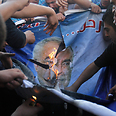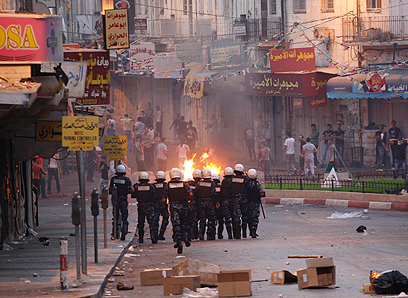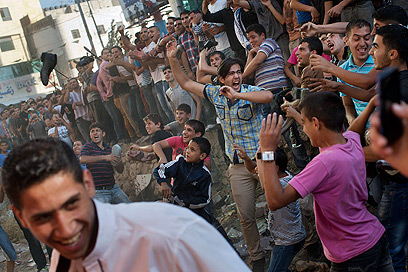
Salam Fayyad has been the target of days of protests in the Palestinian territory, where demonstrators have blamed the prime minister for their financial woes.
Hundreds of protesters gathered outside Fayyad's office in Ramallah on Tuesday morning. It was a peaceful demonstration that occurred a day after anti-government protests across the West Bank had been marred by violent outbursts.

West Bank protest (Photo: Reuters)
Fayyad said he will cancel a series of price hikes in fuel and cooking gas. He told a media conference he also plans to lower a sales tax and said he would fund the subsidies by cutting the salaries of government ministers and other top officials.
That decision was tinged with politics.
The cuts will affect top officials in the dominant Fatah Party. Fatah leaders, who consider Fayyad a rival. They have encouraged protests against Fayyad, a US-educated economist and a political independent.

Angry public (Photo: AP)
Fayyad claimed the crisis was beyond his control and said Israel's occupation of the West Bank is the "major reason" for the problems.
"The ability of the government to deal with the prices is very limited, and the Palestinian situation is more difficult," he said.
The Palestinian Authority, which governs parts of the West Bank, is grappling with a budget deficit because the US and Arab countries that fund the body have not yet delivered the money.
Palestinian Finance Ministry officials said donors owe $1.2 billion in pledged money, which is more than a quarter of the government's annual budget.
The Authority is the largest employer in the West Bank. Its employees have not received full salaries since June.















